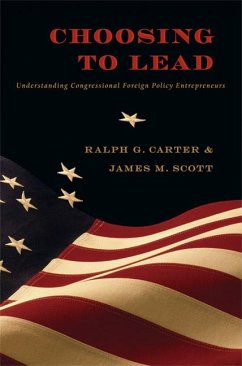Nicht lieferbar

Choosing Our Choices
Debating the Presidential Nominating Process
Versandkostenfrei!
Nicht lieferbar
Probably no feature of the American political system has been subject to more sustained criticism over the last twenty-five years than the process by which we choose our presidents. In Choosing Our Choices, Robert E. DiClerico and James W. Davis debate the question: should we retain the present, primary centered 'direct democracy' method in selecting presidential candidates or should we return to a representative decision-making process to nominate our candidates? This timely and thought-provoking text offers the reader a concise yet comprehensive analysis of the presidential nominating system...
Probably no feature of the American political system has been subject to more sustained criticism over the last twenty-five years than the process by which we choose our presidents. In Choosing Our Choices, Robert E. DiClerico and James W. Davis debate the question: should we retain the present, primary centered 'direct democracy' method in selecting presidential candidates or should we return to a representative decision-making process to nominate our candidates? This timely and thought-provoking text offers the reader a concise yet comprehensive analysis of the presidential nominating system, arguments for and against the current system, and supplemental documents and essays for further reading.











